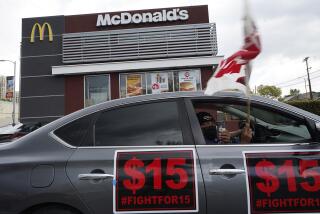Letters to the Editor: Nuclear power’s promise: Live well now, poison humanity in the future

To the editor: To paraphrase a popular aphorism about men and therapy, it appears that young people would rather risk destroying entire landscapes with nuclear waste than have less electricity to power the internet. (“Has nuclear power entered a new era of acceptance amid global warming?” Nov. 18)
Even ignoring the “small but real” chance of devastating nuclear meltdowns, why is there growing de-stigmatization around the inevitability of nuclear waste? Why are we confident that tons of radioactive material sitting for 1,000-plus years in a mountain or under the Earth’s surface will not come back to haunt us? Why are we willing to risk people’s lives centuries into the future rather than have an honest reckoning with the energy-intensive and wasteful character of our lives right now?
Waste is part and parcel of any energy production. Even something as simple as rushing water to power a flour mill, or the sun to power a home, comes with the waste of the materials we use to harness, store and distribute that energy. The reality is that “clean energy” is a political statement harnessed by energy companies to fuel their own financial opportunities; it is not a scientific observation of reality.
I would recommend that younger people receptive to nuclear energy consider the seventh-generation principle, which calls on us to care about the needs of those who will live well beyond our own deaths.
Matthew Neel, Sherman Oaks
..
To the editor: I was very surprised to read this almost positive article on nuclear energy.
How can the Los Angeles area’s own partial nuclear meltdown still be such a secret that it is not even mentioned in this article? Don’t people know that the United States has a compensation plan for sick and deceased nuclear workers?
The site of the Santa Susana Field Laboratory near Simi Valley is highly contaminated; it had a partial nuclear meltdown in 1959 and additional accidents. Many former workers have been sickened or are dead, and sick children have turned up in the area.
There is nowhere in the country to take the “spent” nuclear fuel, so it is stored on site. There is also great danger from nuclear meltdowns.
Bonnie Klea, West Hills
The writer is a former worker at the Santa Susana Field Laboratory.
..
To the editor: I thought the issue of nuclear power was over.
Common renewable energy methods hold none of the dangers associated with nuclear and are less expensive. The cost of nuclear is estimated to be almost four times the cost of solar.
The waste issue is almost insurmountable, as the radioactive half-life of the material is anywhere from 30 years to more than 1 million years. Solar panels may have toxic chemicals, but they are not radioactive for generations. And I have never heard of a solar farm exploding and creating a 1,000-square-mile exclusion zone, as with Chernobyl.
Philip Chipman, Costa Mesa






